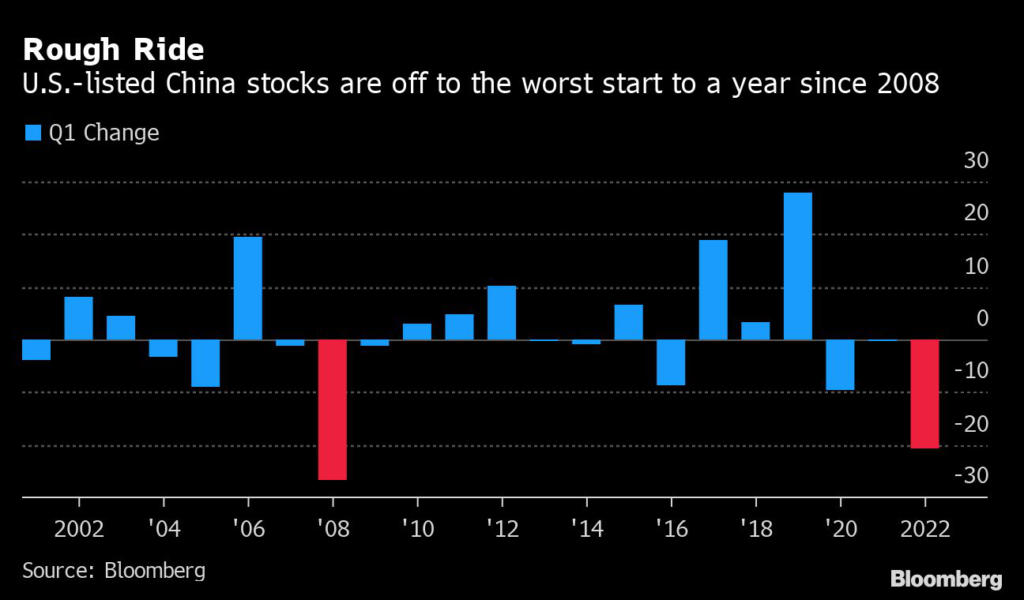(Bloomberg) — U.S.-listed Chinese stocks tumbled on Thursday, wrapping up their worst start of the year since 2008, as worries about of a wave of possible delistings remains high.
The Nasdaq Golden Dragon China Index closed 5.4% lower in New York, with iQIYI Inc. and Baidu Inc. sinking at least 8%. The index fell for a fourth consecutive quarter, or 21%. E-commerce giants Alibaba Group Holding Ltd. declined 6.7% on Thursday and ended the quarter 8.4% lower, while JD.com Inc. and Pinduoduo Inc. also slid more than 5.9% on Thursday.
Investors remain on edge over the outlook for the shares after months of U.S. regulatory pressure involving the companies’ audits. Securities and Exchange Commission Chair Gary Gensler on Wednesday dialed down prospects of an imminent deal that would allow Chinese firms to keep trading on American exchanges.
READ: SEC Chief Doubts Imminent Deal to Avoid China Delistings
Under the Holding Foreign Companies Accountable Act, the SEC started publishing a provisional list of companies identified as running afoul of requirements with the first release in early March. Wednesday saw an additional five firms added to the list including Baidu, iQIYI and Futu Holdings Limited.
“The growing provision list is a reminder that there’s a risk” and a reminder to do a risk check, TH Capital analyst Tian X. Hou said in an interview.
Under the law, which was passed in 2020, stocks that fail to grant approved auditors access to their books for three straight years face removal from U.S. exchanges. China’s Securities Regulatory Commission issued a statement earlier this month saying they would like to work with U.S. authorities to assure the necessary steps are taken.
READ: How The U.S. Is Moving Closer to Delisting Chinese Firms: QuickTake
“Conversations are making progress but I think they want to create a sense of urgency,” said Sharif Farha, a portfolio manager at Safehouse Capital. Gensler’s words might not spook the market, Farha said, but delisting “is a fear that continues to exist for anyone investing in Chinese ADRs.”
Investors are also assessing Covid-related lockdowns in major cities in China and the possible impact on the country’s economic growth.
(Updated with price moves at close and details throughout, and added a chart)
More stories like this are available on bloomberg.com
©2022 Bloomberg L.P.











